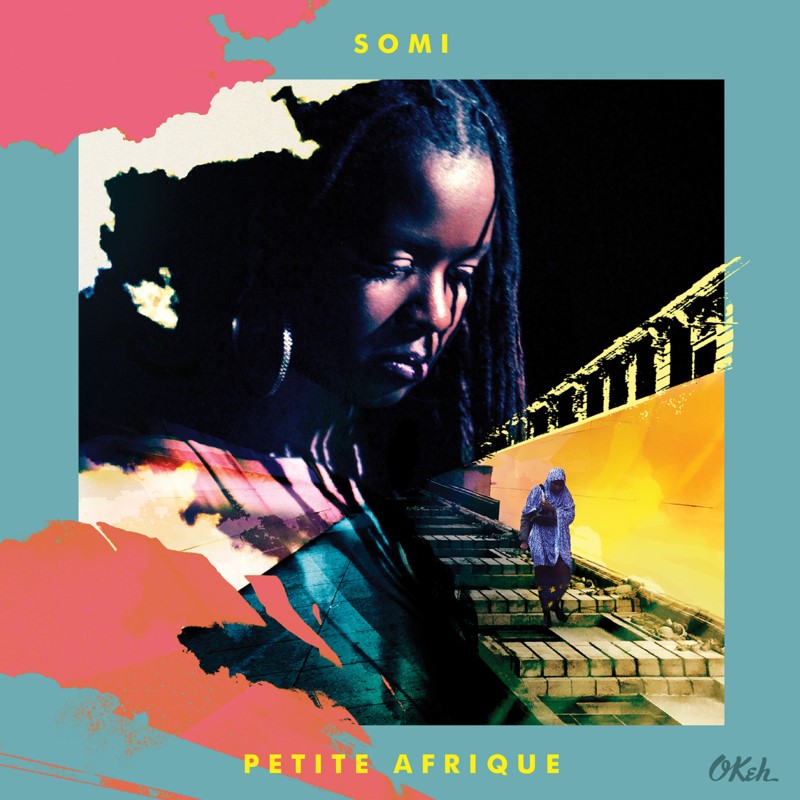Reviews June 16, 2017
Petite Afrique
Somi tells stories with music. This American Midwesterner and daughter of East African parents was effectively born into narrative, and into an inevitable quest for identity. She moved to New York some years back, and began to develop a self-styled career as a singer/songwriter. Somi’s sound is tricky to classify. In a recent interview with Afropop’s Akornefa Akyea, she embraces the tag “new African jazz,” because jazz seems to imply a level of freedom that suits her genre-bending idiosyncrasies. Since the release of Somi’s 2014 album, The Lagos Music Salon, a song cycle chronicling an 18-month stay in Lagos, Nigeria, she has truly found her way as an artist, not just a wonderful singer and creative composer, but someone who can bring all the forces of her complex life together to make larger statements.
Petite Afrique celebrates the lives of West Africans in Harlem by incorporating voices and sounds Somi recorded there while researching the album. We hear from a Senegalese taxi driver who touts his people’s entrepreneurship and work ethic and bemoans the sentiments of those who say, as the interlude’s title puts it, “Go Back to Your Country.” And there's the clatter of djembe drums on a Harlem street woven into the closing miasma of the album’s final piece, “The Gentry,” which also features evocative jazz vocals from renaissance man Aloe Blacc: “Look what they’ve done to Harlem!”
There’s a lot to take in here. But it all unfolds with gentle nuance, centrally placing Somi’s smooth voice, birdlike as it rises and falls and meanders through introspective melodies that can feel like narration even if you don’t follow her image-rich poetry. The influence of Joni Mitchell’s later work is clearly present. There’s even a song called “BLUE,” a wistful, bossa-like number about letting go of an African past, even while recalling it vividly. One standout piece is “Alien,” a poignant riff on Sting’s “Englishman in New York.” “I’m an African in New York,” Somi whispers in the refrain as the song moves from introspective piano ballad to an edgy chaos of sounds with that rise to a full-on cry from the heart. Cool and slinky with taut brass interventions, “Black Enough” takes on the tensions between African immigrants and African-Americans: “I’m not black enough…I’m blacker than you.”
“Holy Room” is an intriguing spiritual, with Somi taking vocal liberties with the Muslim call to prayer—“Allahu Akbar”—even as a keyboard part hints at the sound of a church organ. Many of these songs have what I’d call rhythmic momentum rather than groove. Although “Let Me,” a song of longing for all sorts of freedoms, chugs along nicely to the percussion of Etienne Charles, and “Like Dakar” unfurls a simmering Latin clave feel. “Like Dakar” also delivers one of Somi’s succinctly penetrating lyrics, opening with “I remember Harlem,” and closing with “Harlem, remember me, too.” In those few words, lies the essence of this album’s deep reflection on the ebb and flow of culture and identity in urban America.









